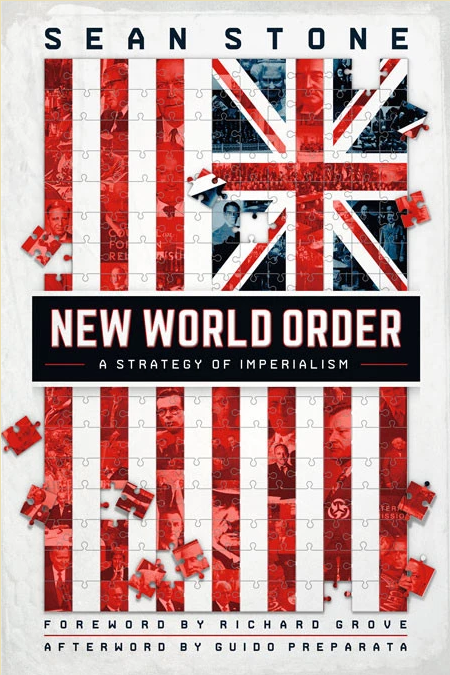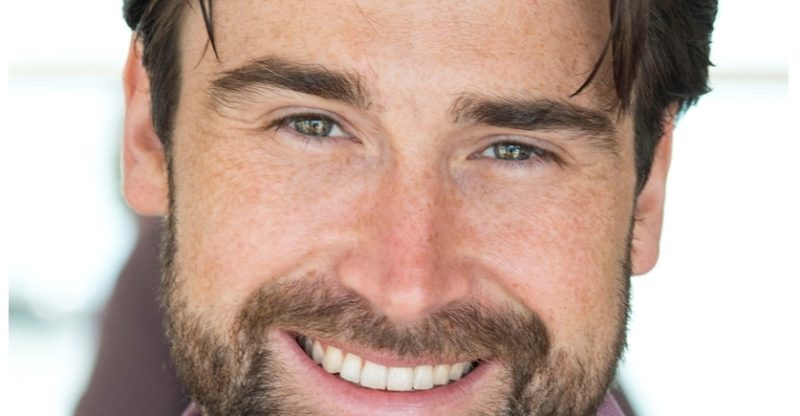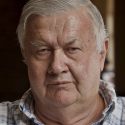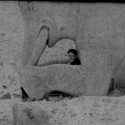The Journey 47. Sean Stone: Exposing the New World Order
Sean Stone discusses his book, “New World Order: A Strategy of Imperialism,” with publisher Kris Millegan – the Brits behind imperialism, Cecil Rhodes, the British Round Tables, the Council on Foreign Relations, William Yandell Elliott and his influence on thousands like the Rockefellers, Henry Kissinger and Pierre Trudeau, the quest for world governance, and remembering the freedoms and Constitutional principles that we cherish.

K: Why did you write “New World Order: A Strategy of Imperialism”?
S: I’m tired of people talking about conspiracies like they’re just theories and not realizing that we live in a conspiratorial reality. The book to me is an academic approach to a real conspiracy that the imperialists refer to as the new world order. It’s a way to help the American public in particular, though I think internationally it’s important for people to know that it’s not really America that’s driving this empire. That it’s much older than America and it’s very much an internationalist, or globalist, conspiracy to actually disempower the United States from its principles within the Constitution, to give people an understanding of the British or Anglophile orientation of many of these imperialists that are not pro-American in their ideology and in their policies.
I wanted people to understand a little of that thought process by going into the history of Kissinger’s mentor, William Elliott, and his training in the British Rhodes Scholarship tradition. People are realizing the British role in this whole game. This was about informing the American public that their real enemy is in the imperial class of what was traditionally the British Empire but much deeper and older than that if you really go into the larger history.
K: William Yandell Elliott. Why don’t you tell the folks who he was.
S: He is representative of how the empire works. As a mentor to people like Kissinger. Brzezinski – maybe he didn’t have as much influence on. But Elliott taught thousands and thousands of kids that went through Harvard, the politics department. John Kennedy. Pierre Trudeau. People like this. The ideology of the professor is very much an orientation for the students. Simultaneously, as he’s teaching kids at Harvard, he has an office at the CIA. Simultaneously, he’s an advisor to people like the Rockefellers. I think he was on the Council on Foreign Relations at some point. This is what I was tracing, what he represented, as far as the ideology goes of the imperial/internationalist class. Do they really serve the best interests of the American Constitutional principles? That is the question. To me, my book is very much a focused attempt at understanding how these conspiracies work. It’s through ideas.
K: Would you give a little overview of what the British Round Table movement was?
S: Cecil Rhodes was a titan of empire. He was the great imperialist who was involved in the acquisition of what became South Africa, and Rhodesia was named after him. Now it’s Zimbabwe. He founded the De Beers diamond empire. He was also very much involved in gold. His backer was Lord Rothschild. He was one of the figureheads of the imperialist class. “Go out there, young man, and colonize the world for England.” When Rhodes died, he put in his will, “We should basically bring the holy land under our sphere; bring America back into the Empire.” His cohorts become the Round Table groups of England, who are very influential in putting together these sort of think tanks, like the Council on Foreign Relations, which is essentially a think tank for the intellectual elite and the financial elite to gather and talk about policy.
Basically you could say that a lot of the planning for World War I happened in the Round Table meetings. It was not just some spontaneous thing. It was expected for a long time because Germany was a great rival, and Germany was getting stronger, and the danger was that Germany was expanding not just on the land but also with its navy. And [the British imperialists] confronted the idea of not having the manpower to keep the empire. Remember, the British Empire had a quarter of the planet in its sphere. From Canada to India to Australia. And they’re thinking, “How do we preserve this thing? We don’t have the manpower to do it. Well, we need ideas.” So the Round Table groups were about spreading the influence of the imperialists, and bringing people into the Rhodes Scholarship was Rhodes’s idea of educating the people in the colonies to their economic models, to their political and legal models of rulership. And that’s what the Round Table was essentially, to my recollection, was important towards – how to manage the overall empire and whether or not this empire could ultimately move toward world government, because, ultimately, the new world order agenda is world governance.
By the way, Klaus Schwab [founder of the World Economic Forum] was also trained by Kissinger, so he’s in this lineage, when Klaus Schwab talks about a “great reset” of the economies and essentially having a world where everyone basically lives like a tenant. No one owns anything. This is exactly the world model that was talked about a hundred years ago.
K: My father was up for a Rhodes Scholarship from Oregon. But he didn’t win that one and he ended up going into the CIA instead, and then leaving them because he wouldn’t be involved with the drug running. They were trying to get kids when they were young and try and influence them.
S: My hope for the future is that the tyranny is waning in energy. It’s too obvious. They have to make themselves more and more overt. And as a result, they get more and more backlash, and ultimately the best way for us to preserve our freedom is to have more limited forms of government. It’s bringing power back to the counties.
All of a sudden, you’re having counties saying no to the governors. And the states are taking the power back. States like Florida and Texas are saying no to vaccine passports. This is the only that I see for us to preserve freedom is to bring the power back to the local level and to the county level and to the state level. This is what the Civil War was fought about. It was about slavery, and economics were involved, huge economics. Slavery was a huge industry. But more importantly, there was a states’ rights issue that since then has basically been skirted because the North won, and ever since then, unfortunately, we’ve seen more and more federal power. And there have been good aspects of the federal power, when it comes to things like desegregation, you could argue. But at the same time, the federal power has encroached on us at the level of our bodies, you know, things like this, the drug wars. So we don’t want to see more federal power. We don’t want to see more global power. We want to see more local power. Then we can come together.
The only way for a new renaissance to occur on this planet is if we can respect the individual as a body-mind-spirit complex, not just as Klaus Schwab talks about, a physical-digital-biological being. There’s no spiritual being in their worldview. Their worldview doesn’t like spirit. Their worldview is scientific dictatorship, satanic at its most extreme form because it discounts the spiritual nature of the human being.
K: Psychological warfare comes from the German term meaning “worldview warfare,” which has been going on for quite a while.
S: The Biden Administration is nothing if not new world order writ large. Everything about is exactly their new world order, totalitarian take-down of the U.S. Guess what? They roll through it, and it’s over. The only way to get through it is to go through it. Their ideology will not end until they complete the thought. It’s a thought-form that exists and it has to complete itself.
K: A republic with democratic institutions is a good form of government. I’m not into anarchy. We need governments so we can talk with each other and work with each other.
S: The idea of the new world order has to play itself out. It doesn’t mean that the energy of it will be as totalitarian as it would like to be. In the process of playing itself out, that is how we empower ourselves, by remembering what we are here for and the freedom that we cherish and the life that we wish to live.









